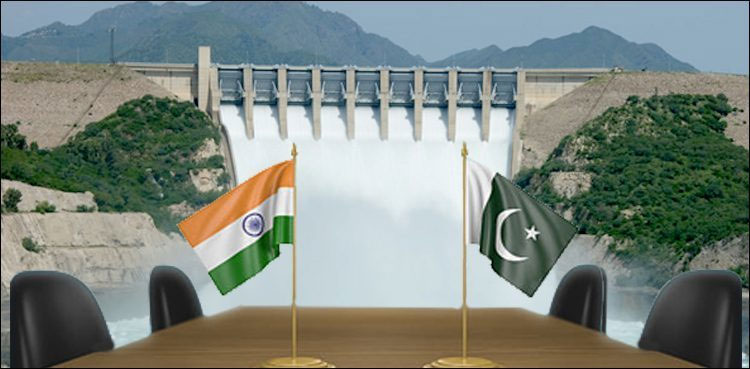Delegations from the nuclear-armed regional rivals met in New Delhi for the Indus Water Treaty talks
Regional rivals Indian and Pakistan pledged to work together to resolve issues over shared water resources, at a meeting on Tuesday.
This was agreed at the 118th bilateral Indus Water Treaty gathering — a twice-a-year summit on treaties governing water sources and flood information.
Pakistan’s five-member delegation arrived in India capital New Delhi on Sunday, before the meeting.
The sides discussed issues related to advance flood information and the annual report of the Permanent Indus Commission, India’s Ministry of External Affairs said.
“The commission appreciated the commitment of the two sides to interact frequently and resolve issues through bilateral discussions under the Indus Water Treaty. It was agreed to hold the next meeting of the PIC in Pakistan on mutually convenient dates,” the ministry said.
“The meeting was held in a cordial manner,” it said.
The nuclear-armed rivals signed the World Bank-brokered agreement in 1960. Named after the vast Indus River basin where six major rivers flow from the Himalayas into the Indian plains, it outlines the distribution of the water between the nations.
The agreement lays down rights of water storage, irrigation and electricity generation for each country.
Even as ties have ebbed and flowed, including a number of conflicts and wars, the deal has remained largely in effect.
The water commissioners of both nations are required to meet twice a year — alternately in India and Pakistan — to visit project sites. They met in Pakistan’s capital Islamabad in March.
At Tuesday’s meeting, they reportedly discussed hydroelectric projects, including the under-construction 1,000-megawatt capacity Pakal Dul dam.
This is being built on the Marusudar River, a tributary of the Chenab River, in the Kishtwar district of the disputed Indian-administered Kashmir.
READ ALSO: Russian army advance towards centre of Ukraine’s Severodonetsk
Pakistan has objected to the dam’s height and spillway — a structure that, when a reservoir is full, passes floodwater safely over a dam.
Islamabad claims the dam will damage the flow of the river into its territory. It sought a visit to the site but India reportedly rejected the suggestion.
About 80 per cent of Pakistan’s agriculture depends on the Indus River and its tributaries. But India has a strategic advantage as it controls the flow of the rivers, due to its topography, making the meetings on water sharing imperative for Pakistan.
The talks come at a time when Pakistan is facing an acute water crisis. Water for irrigation and its population of 30 million is steadily declining.
According to a recent UN report, Pakistan is among 23 nations suffering from “a severe prolonged drought”.













